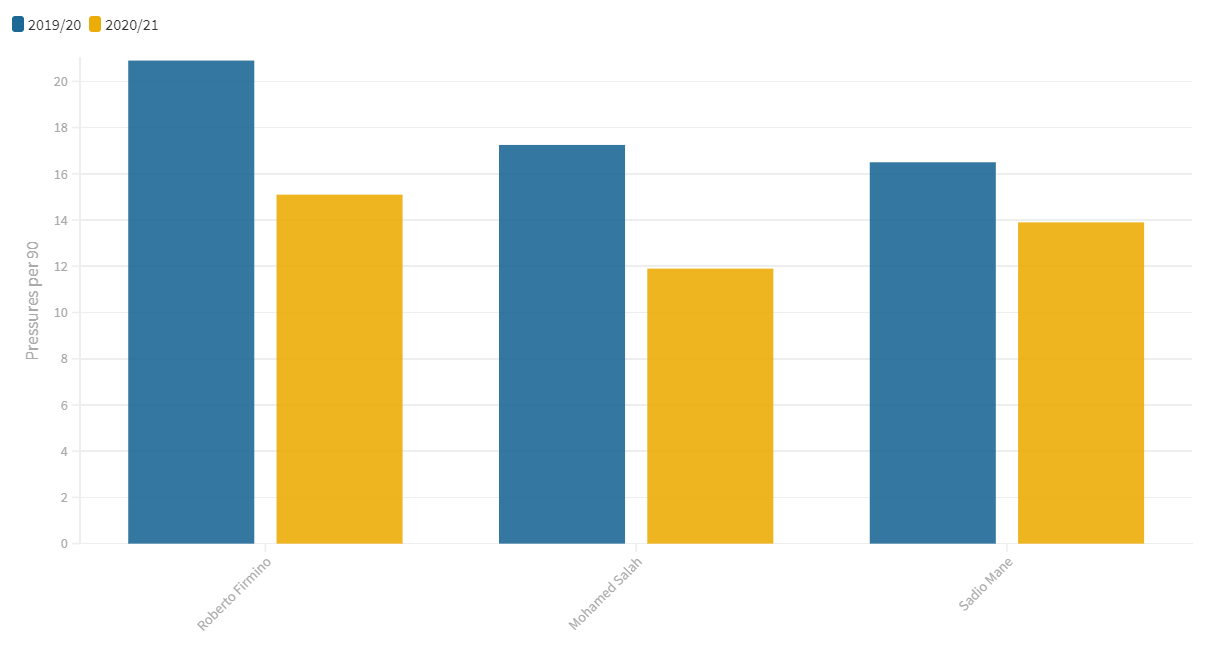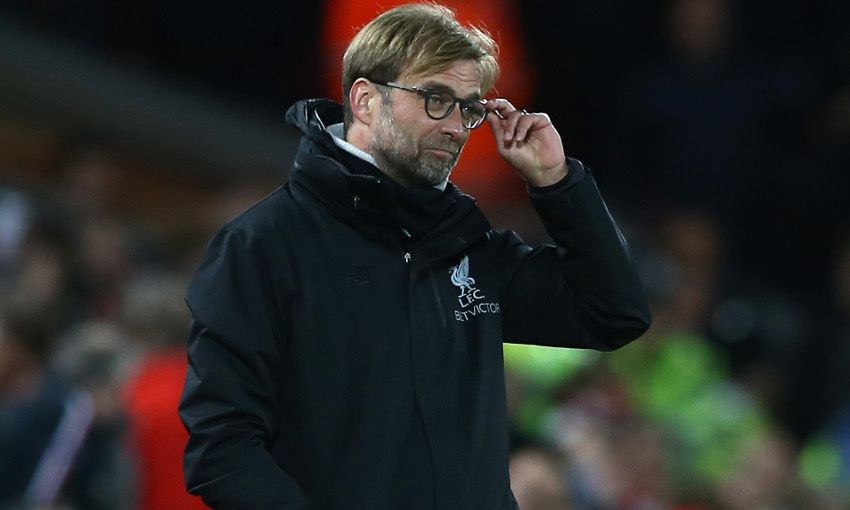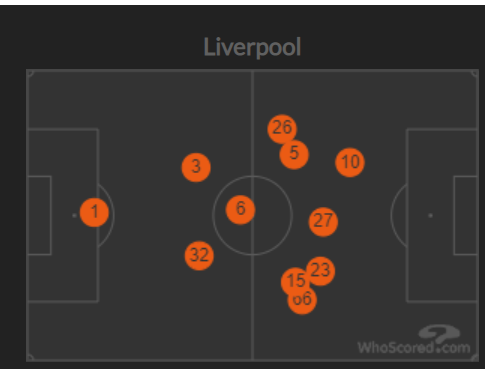“No playmaker in the world can be as good as a good counter-pressing.”
Jurgen Klopp once famously spoke these words, in an espousal of his footballing philosophy. From day one at Liverpool, this has been a central tenet of his system. It is a big part of what helped the side amass 195 points over the course of two seasons, picking up a Premier League and Champions League trophy on the way.
This season, with only a little more than half of the campaign gone, Liverpool have already dropped 29 points – just six fewer than the previous two seasons combined. There are a whole host of factors, not least the long-term absence of all three of the senior centre-backs. Given how transformative Virgil van Dijk was when he first came into the team, it might not be too dramatic to say that the title defence ended when Jordan Pickford recklessly lunged in on the Dutchman.
But there’s another name among the list of absentees. And it’s Jurgen Klopp’s best playmaker.
Liverpool’s pressing has quantifiably dropped off this season.

Each of the front three are completing fewer presses per 90 minutes. Roberto Firmino, so important as the leader of the press in past seasons, is completing almost six fewer pressures per game. It is a similar story with Mohamed Salah, and to a lesser degree Sadio Mane too.
There are a number of potential explanations for this. One is the extraordinary nature of this season. The effects that the Covid-19 pandemic has had on football are far-reaching. Most obviously, it has resulted in a congested fixture calendar. This will inevitably have an impact on fitness levels, in turn affecting how much a press can be sustained. Jurgen Klopp’s comments about rest in the build-up to the Manchester City game suggest that this issue is forefront in the manager’s mind.
As Pep Guardiola rightly pointed out in response, this is an issue that all teams have had to deal with. Regardless of any discrepancies in the exact number of days between fixtures, it should not be a point of contention that recovery time has been slashed for all Premier League clubs. However, for a team built around high-energy pressing, the sapping effect of playing fixtures every three to four days is particularly damaging.

Source: liverpoolfc.com
This is only exacerbated by the injury problems, which have made rotation a much less viable strategy for coping with the congestion. Klopp has been forced to either turn to largely ineffective alternatives such as Divock Origi, or else stick with the first-choice XI to the point of burnout. The slump in which Liverpool currently find themselves is the result of largely taking the latter option.
However, there is another reason for the drop-off in pressing – one which is arguably more significant, and certainly more concerning. It can be summed up very simply: Liverpool can only press their opponents if their opponents have the ball. Thus, just as a manager might opt to man-mark a team’s most dangerous playmaker, opposition coaches are nullifying Klopp’s biggest weapon by refusing to play his game. They are ceding possession to Liverpool, daring them to break down the low block, and then hitting on the counter when the chance arises.
Liverpool’s average possession this season emphasises this point: 64.3%. When the opponents are eschewing the ball, kicking long rather than building from the defensive third, there is precious little window for counter-pressing. This can be exemplified by comparison with Leeds. All of the points about fixture congestion apply equally to Marcelo Bielsa’s team, and yet they have five players who have completed more pressures than Liverpool’s leading presser.
Once again, this problem is intertwined with the injury situation. Liverpool’s average possession was not significantly lower last year (63.5%), but the raking switches and long balls from Virgil van Dijk made sure that the opposing defence could still be dragged around and pulled out of shape. And an ever-changing back line robbed of its senior options is obviously going to be more vulnerable to fast breaks too. But this cannot be used to entirely dismiss the underlying alarming possibility: opponents have worked out the blueprint for playing Liverpool.

This diagram from WhoScored shows Liverpool’s average positions in the game against Burnley. The narrow shape immediately jumps out. With Burnley parked behind the ball, this resulted in a hugely congested central corridor. The signing of Thiago was presumably designed to help in situations such as these, but it is a big ask for one player to consistently pick the lock. Asking him to find the killer pass through the sea of defenders is about as much of a solution as asking Philippe Coutinho to find the top corner – it will happen, and it will win the team points, but it can’t be relied upon.
Equally, when the ball does go wide, Liverpool’s crossing game is proving ineffectual this season. Trent Alexander-Arnold and Andy Robertson registered 46 assists between them in the previous two campaigns – but this is a great example of how everything that was so brilliant about this side can be linked back to pressing. With the relatively diminutive Roberto Firmino in the box, a strong crossing game alone is not enough to guarantee goals. On-the-money deliveries are essential, but they also need to be aimed into a box where the defence is out of shape. Against an organsied and deep line, swinging the ball in is pretty much a waste of time.
Right now, Jurgen Klopp and Liverpool are drawing blanks when it comes to how to beat these deep defences. Going narrow isn’t the answer, but utilising the width has led to the most crosses in the league and very little to show for them.
But this doesn’t have to be terminal. Pressures will naturally pick up at least to some degree once the fixture schedule returns to normal. And Thiago’s signing at least indicates that Klopp and his staff were aware of the team’s shortcomings, even while it was conquering all before it. With some time to bed in, both for the player and for new tactical ideas, there is nothing to say that Liverpool can’t find a way to overcome the low block. Becoming as dangerous with the ball as they are without it: this is the next great challenge for the champions.
James Martin
Latest posts by James Martin (see all)
- A Pressing Concern - February 8, 2021
- Manchester City 1-1 Liverpool: Did Klopp’s formation gamble pay off? - November 10, 2020
- The big Premier League preview Part Two – The bottom half - September 10, 2020
